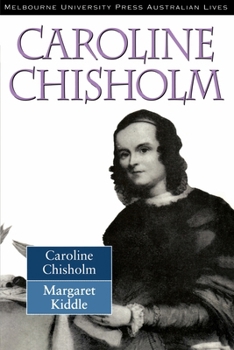Caroline Chisholm
Select Format
Select Condition 
Book Overview
Foundation biography of the woman whose remarkable achievements first asserted the place of women in Australian public life.
'The most astonishing thing about her is that she did such work at a time when women were still imprisoned in the strait-jacket of Victorian convention'-Margaret Kiddle
Caroline Chisholm was the most remarkable woman in early Australian colonial history. Her national importance has been marked by the use of her portrait on Australian stamps and currency.
This is the classic biography of the woman whose remarkable and hard-won achievements first asserted the place of women in Australian public life. Almost single-handedly and against strenuous and sometimes malicious opposition, the indomitable Chisholm worked to establish a Female Immigrants' Home, to encourage family immigration and to fight for better conditions on immigrant ships. Her biography has rightly been acclaimed as outstanding, a landmark in the study of women in Australia's history. The author was herself a pioneer among Australian women historians.
Related Subjects
Arts, Music & Photography Broadway & Musicals Music Musical Genres Opera Performing Arts Theater




















